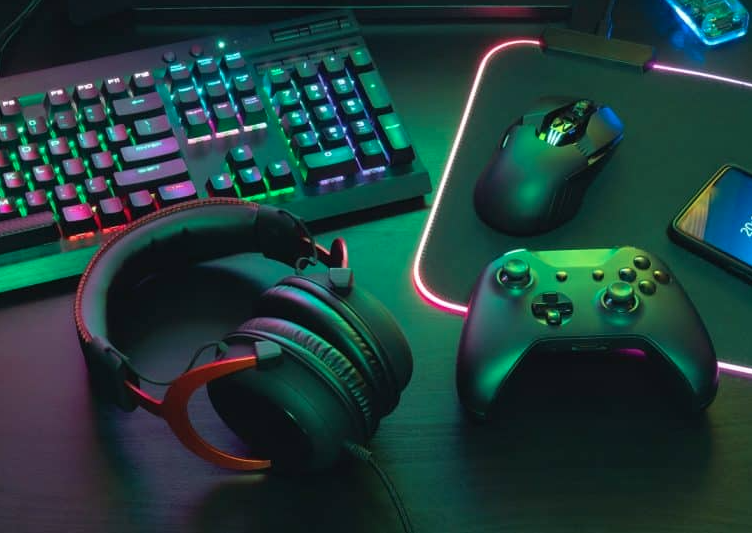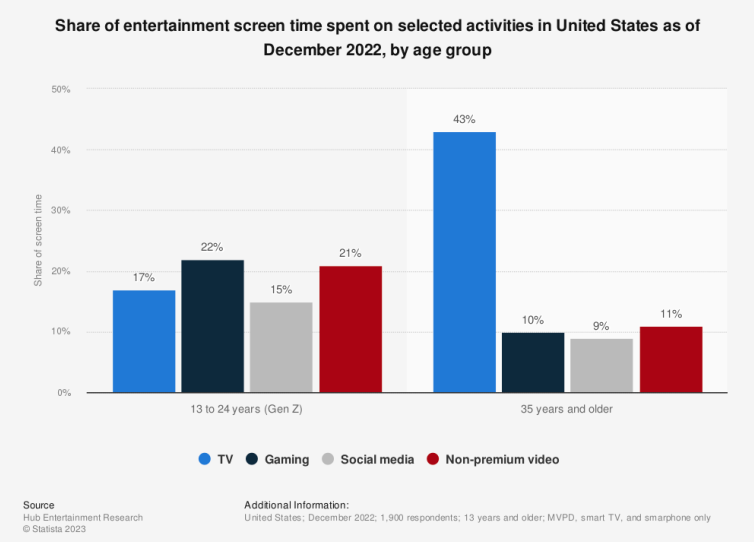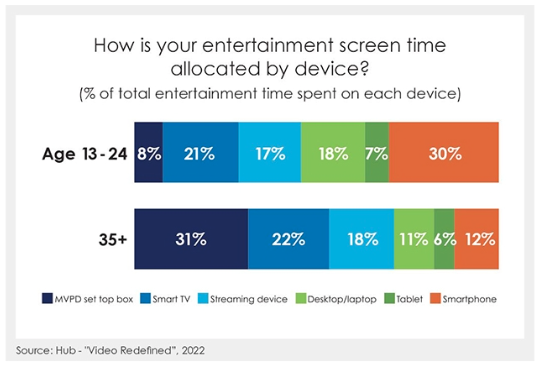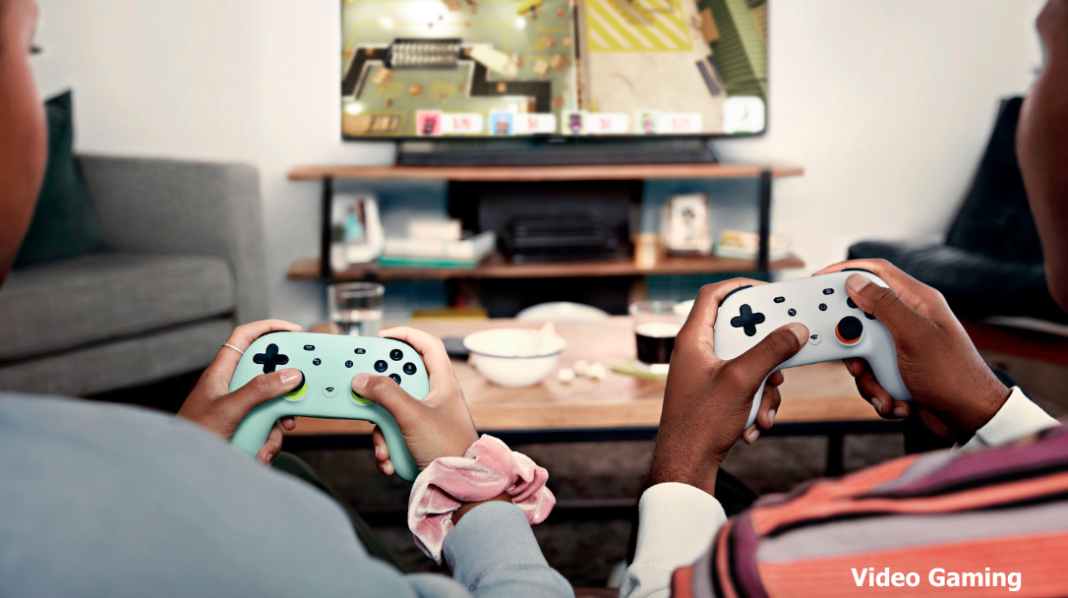Most of us have fond memories of watching Saturday morning cartoons or rushing home to catch our favorite sitcom or playing video games. However, Generation Z, born between the late 1990s and early 2010s, has a different story to tell. They grew up in a time of rapid technological advancement, which has greatly influenced their experiences.
We now live in a digital world where Gen Z has transformed traditional media consumption. They were raised during the emergence of smartphones, the widespread use of social media, and the popularity of on-demand entertainment. As a result, they possess a natural fluency in all things digital.
For Gen Z, screen time goes beyond passive television watching. They actively engage with technology through video games, social media, and mobile platforms. Their interactions are more interactive and immersive, shaping their unique reality.

Gen Z Trends to Level Up: The Game of Attention
There has been a significant shift in media consumption among Gen Z generation, indicating a departure from traditional forms.
Compared to older generations, Gen Z’s relationship with television is notably different. They spend less than half the time watching TV shows, preferring gaming. This makes up 22% of their screen time, and non-premium videos like YouTube content. Definitely, it accounts for another 21%. Traditional television only occupies 17% of their screen time.

Data from the YPulse Gaming report reveals that 95% of Gen Z and Millennials engage with video games, with 78% playing on a weekly basis or even more frequently. The competition for screen time is no longer limited to TV channels or streaming services. It has transformed into a virtual tug-of-war, with traditional television grappling with modern gaming platforms for the attention of young audiences.
Similar Posts
- Apple Vision Pro VR Headset Features, Price, Spec, Video and Release date
- My Experience with Apple Vision Pro after Trying it Out
While television still holds a significant portion of Gen Z’s weekly media time, it has become more of a multitasking activity rather than a dedicated pastime. Approximately 71% of young individuals frequently engage in other activities, such as scrolling on their phones or playing games, while watching TV. As a result, even though the television may be on, it doesn’t necessarily capture their full attention.
According to Netflix CEO Reed Hastings, their primary competition comes from video games, as they vie for valuable screen time. Hastings stated in a shareholder letter, “Our focus is not on Disney+, Amazon, or others, but on how we can improve our experience for others. We compete with (and lose to) Fortnite more than HBO. When YouTube experienced a global outage for a few minutes in October, our viewing and signups spiked during that time.”
Game Over, TV: Gaming Clocks More Hours
When we closely examine the gaming habits of Gen Z, it becomes clear that the competition between TV and gaming is fierce.
In terms of time spent on games, there is a noticeable difference between Gen Z and millennials. While both demographics engage in gaming on a weekly basis, Gen Z dedicates more time to gaming on their computers and mobile devices compared to millennials. With nearly 90% of Gen Z being gamers, they spend approximately 12.2 hours per week playing games on consoles and computers, slightly surpassing the 11.8 hours they spend watching television.
Popular games like Roblox, Minecraft, and Fortnite have a wide presence across different devices, drawing Gen Z away from traditional TV. These virtual worlds created by games hold significant importance in the lives of Gen Z, often rivaling the importance of their real-world experiences.
Upgrades makes Smartphone Screens Reign Supreme
Apart from gaming platforms, Gen Z also dedicates significant time to non-premium video platforms like YouTube and TikTok.
When it comes to screen time, Gen Z demonstrates a clear preference: 30% use smartphones, followed by 21% using smart TVs, 18% using computers, and 17% using streaming devices. These choices collectively push traditional television to the sidelines.

Cable TV usage is notably low among Gen Z, with only 8% of their screen time dedicated to shows via a cable box. The majority of Gen Z individuals state that their consumption of non-premium videos has resulted in reduced viewing of regular TV.
In cases where both YouTube and TikTok are used by Gen Z consumers, TikTok emerges as the favored platform. Currently, TikTok is Taking over Mobile Monetization Ads Revenue globally, However, there are some Polls shows that UK parents want TikTok banned from United Kingdom.
Conclusion
Going forward, about 73% of Gen Z respondents expressed that they would choose TikTok if they had to stick with just one platform. This preference signifies another shift in Gen Z habits: a growing inclination towards shorter, more interactive content offered by these platforms. While all these are going on, the issues below still come up on Tiktok;
- TikTok Ban, TikTok CEO Updates and The Future of TikTok
- TikTok Facing Regulatory Challenges while UK Parents call for Ban
- Why is Everyone Copying TikTok Success? Hinge Grew 60% YoY Revenue Increase
Gen Z’s wholehearted embrace of gaming exemplifies their status as “content omnivores.” While they still have a passion for entertainment, their habits extend beyond traditional television.
The preference for gaming over “regular” TV, combined with their engagement with non-premium video content and mobile platforms, is radically transforming the world of entertainment.
These young adults there enjoys playing video games more that watch TV shows. From the data on this post, you can see the reasons why Gen Z spend 12 Hours per week or more on average Playing Games.







